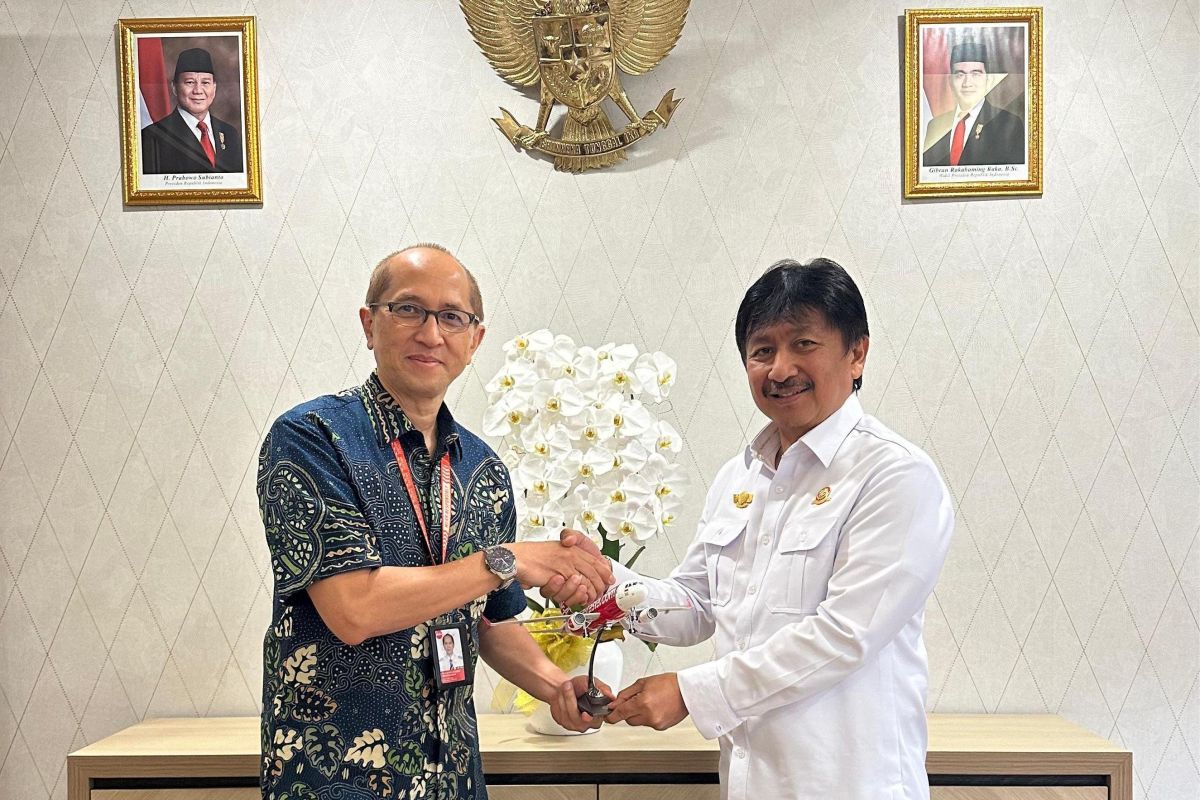In a notable leadership transition, Achmad Sadikin has officially been appointed as the new AirAsia Indonesia CEO, taking over the reins at a pivotal time for the airline. The announcement has sparked public interest, not only because of the strategic significance for the airline’s future, but also due to the disclosed details of his annual compensation package.
As the aviation industry continues its recovery from the aftershocks of the COVID-19 pandemic, AirAsia Indonesia’s leadership change signals a renewed focus on efficiency, sustainability, and market expansion. Let’s explore what this appointment means for the company and the broader airline sector in Indonesia.
Who Is Achmad Sadikin?
Achmad Sadikin brings a wealth of experience in the aviation and business sectors. Before assuming the role of AirAsia Indonesia CEO, he served in several high-level positions within the company, including Commissioner. His familiarity with AirAsia's operational structure and strategic goals makes him a natural fit for the top position.
Sadikin is known for his strong background in corporate governance, financial management, and business transformation—skills that are increasingly crucial in the post-pandemic aviation landscape. His appointment was made official during the General Meeting of Shareholders (RUPS) held by PT AirAsia Indonesia Tbk, the company that operates as Indonesia AirAsia.
The leadership transition comes at a time when the airline is looking to rebound from years of limited operations and restore public confidence in air travel. Sadikin’s expertise will be key in executing a revitalization strategy to reposition AirAsia Indonesia as a competitive low-cost carrier in the region.
CEO Salary and Transparency in Public Companies
One of the most talked-about aspects of Sadikin’s appointment was the disclosure of his salary. According to the official documents released by the company, the total compensation received by members of the Board of Directors and Commissioners—including Sadikin—is capped at Rp 3.56 billion (approximately USD 220,000) annually. This figure includes salaries, benefits, and performance-based incentives.
While the exact breakdown of Sadikin’s personal compensation as AirAsia Indonesia CEO was not detailed separately, the transparency in salary reporting reflects good corporate governance practices in publicly listed companies. In Indonesia, such disclosures are required under regulations set by the Financial Services Authority (OJK), and they help reinforce investor trust.
For AirAsia Indonesia, revealing executive compensation also sends a message about accountability. It aligns with the broader trend among Southeast Asian companies to adopt international standards of transparency, especially as they seek foreign investment and stronger financial performance.
AirAsia Indonesia’s Current Market Position
AirAsia Indonesia has long been a key player in the country’s budget airline segment. With routes covering major cities in Indonesia and Southeast Asia, the airline built its brand on affordability and convenience. However, the airline, like many others, was severely impacted by the COVID-19 pandemic, resulting in suspended routes, reduced staff, and significant revenue losses.
Now that air travel is gradually returning to pre-pandemic levels, the airline sees an opportunity to rebuild. As AirAsia Indonesia CEO, Sadikin is expected to focus on three main pillars:
1. Operational Recovery and Fleet Optimization
Under Sadikin's leadership, the company is likely to reassess fleet utilization and restore routes that have been dormant. Efficient scheduling, lower operating costs, and improved load factors will be central to this effort.
2. Digital and Customer Experience Innovation
AirAsia has been investing heavily in digital transformation, including app-based bookings, contactless check-ins, and AI-driven pricing systems. Sadikin is expected to continue this innovation push, enhancing customer satisfaction and operational efficiency.
3. Strategic Regional Expansion
With growing demand for low-cost carriers in the ASEAN region, especially from budget-conscious millennials and Gen Z travelers, AirAsia Indonesia has a golden opportunity to expand. Sadikin's regional knowledge and leadership will be instrumental in capturing this market.
Challenges Ahead for the New CEO
Being the AirAsia Indonesia CEO is not without challenges. The airline industry in Southeast Asia remains intensely competitive, with players like Lion Air, Citilink, and Super Air Jet vying for market share. Additionally, fluctuations in fuel prices, currency exchange rates, and regulatory pressures add layers of complexity.
There’s also the matter of passenger trust and safety. After a period of suspended operations, airlines must rebuild their reputation for reliability. Sadikin must ensure that safety protocols, punctuality, and service quality are upheld to win back customer loyalty.
Moreover, achieving profitability in the low-cost airline segment requires a delicate balance between pricing, service quality, and operational efficiency. Sadikin's strategic and financial acumen will be tested as he works to restore the airline’s margins.
The Broader Impact on Indonesia’s Aviation Sector
Sadikin’s appointment as AirAsia Indonesia CEO represents more than just an internal shift. It reflects a broader trend of leadership renewal in Indonesia’s corporate landscape, where performance, innovation, and accountability are becoming more important than tenure or hierarchy.
It also signals a shift in how airlines in the region are approaching recovery and expansion. With experienced leaders like Sadikin at the helm, Indonesia's aviation sector may see stronger resilience, better service standards, and healthier financial metrics in the years to come.
The ripple effects could influence government policy as well. As airlines bounce back, there may be renewed discussion on airport infrastructure, aviation fuel subsidies, and route deregulation—all of which will impact how AirAsia and others chart their paths forward.
Conclusion: A Leadership Move with Strategic Implications
Achmad Sadikin’s appointment as AirAsia Indonesia CEO comes at a critical moment for the airline and the industry at large. With a background in governance and transformation, he appears well-equipped to lead the airline through its next chapter.
His leadership will be measured not just by financial turnaround but also by how well he can guide the airline to adapt to new consumer expectations, environmental standards, and digital disruptions.
As Indonesia continues to position itself as a central hub for regional air travel, strong leadership at key players like AirAsia Indonesia will be instrumental in shaping the future of aviation in the country.
Read More






 Thursday, 26-02-26
Thursday, 26-02-26







